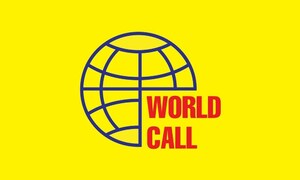Digital financial services termed crucial for widespread financial inclusion
ISLAMABAD: Digital financial services for micro, small, and medium enterprises (MSME) in rural and semi-urban populations are crucial for widespread financial inclusion.
This was stated by Aamir Aftab, chief product officer at JazzCash while addressing a panel titled, “Strategies for Thriving in Pakistan’s Digital Supply Chains: Inflation, Credit Dynamics, and Digital Imperatives” at the DigiBap Summit 2024.
In Pakistan’s developing economy, it is crucial to empower the MSME sector through financial solutions designed to digitise the supply chain and propel the economy forward. The country is home to approximately three million SMEs, and JazzCash aims to digitise its transactions.
He added, “By digitising MSME payments and supply chain financing in unbanked and underbanked areas, we have a significant opportunity to improve people’s livelihoods by building a truly cashless ecosystem.”
He further illustrated how fintech players like JazzCash are enabling grassroots digitisation in rural and semi-urban areas to enable end-to-end Digital Supply Chain Finance (DSCF) Solutions for MSMEs.
SaleemUllah, the deputy governor of the State Bank of Pakistan, emphasised the importance of leveraging technology to digitise supply chain finance.
Digital financial solutions can enable the MSME sector to improve operational efficiency with improved financial liquidity and better credit ratings, promoting the long-term and stable development of stronger supply chain relationships.
JazzCash hosts the country’s largest merchant ecosystem, with over 300,000 payment points accepted nationwide. This is supplemented by a 245,000-strong agent network that facilitates customers with cash withdrawals and deposits.
“The platform processes over 100,000 loans daily, providing a crucial financial tool for MSMEs, which are the backbone of Pakistan’s economy but have historically had limited access to formal financial sources,” said Aamir. “With policy interventions that incentivise digital payments, we can accelerate the adoption of digital financial services. JazzCash’s extensive network allows it to digitise over PKR 100 billion each month, serving a customer base of 44 million.”
As Pakistan’s largest fintech company, JazzCash operates on a massive scale to reach MSMEs in rural and semi-urban areas often overlooked by the formal banking system. By encouraging widespread QR adoption, JazzCash offers convenient solutions to MSMEs, particularly home-based businesses, many of which are run by women, through access to digital financial services.
Policy interventions that incentivise digital payments can significantly grow DSCF adoption. The impact of such policy interventions is evident with the exponential growth in RAAST users, who now stand at 35 million accounts, with 1 in 2 RAAST users being a JazzCash customer.
Other speakers at the panel included Atif Salim Malik, chief operating officer of JS Bank; Salman Akhtar, CEO of Techlogix/AdalFi; Shahzad Khan, group executive director of Telenor Microfinance Bank; ShariqMubeen, chief digital officer of Meezan Bank and Imtiaz Jaleel, chief financial officer of Tapal Tea.
Copyright Business Recorder, 2024

























Comments
Comments are closed.